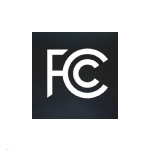 Judging by the reaction to the Connect America Fund order when it was adopted by the FCC in October, readers might have expected to see a flood of organizations issuing legal challenges to the order. But it appears that relatively few such challenges have been made.
Judging by the reaction to the Connect America Fund order when it was adopted by the FCC in October, readers might have expected to see a flood of organizations issuing legal challenges to the order. But it appears that relatively few such challenges have been made.
Telecompetitor’s understanding is that filings received by Friday had the advantage of having the court in which they filed entered into a judicial lottery to determine which court will hear the case—a reality that often acts as a strong motivator for potential filers. Nevertheless Telecompetitor is aware of only four filings.
These include challenges from the Pennsylvania Public Utility Commission, network operator Core Telecommunications, the National Telecommunications Cooperative Association and (newly added to the list) AT&T.
Bloomberg is reporting that AT&T filed its challenge with the U.S. Court of Appeals in the District of Columbia, arguing that some of the moves outlined in the order exceed the FCC’s authority. An AT&T spokesman told Bloomberg in an email that “We are appealing a very narrow inter-carrier compensation issue.”
By some measures, the nation’s largest carriers including AT&T and Verizon, have the most to gain from Universal Service fund reforms outlined in the Connect America Fund (CAF) order, which aims to convert today’s voice-focused USF program to focus instead on broadband. The order paves the way for incumbent carriers to receive the lion’s share of USF dollars, with a higher percentage of total funding going to price cap territories than in today’s program.
Yet several organizations whose members have less to gain from USF and ICC reforms have opted not to challenge the order. Telecompetitor checked in today with the American Cable Association; the National Cable & Telecommunications Association; CTIA, the wireless association; the Rural Cellular Association and supporters of the Tech/Users Framework for inter-carrier compensation and Universal Service reform, including VoIP providers Skype and Vonage—and all of those organizations said they have not filed challenges to the Connect America Fund order. Also opting not to file a formal challenge were Verizon and The Free Press–a consumer group that was quite vocal in critiquing the CAF order, arguing that it would cause prices to rise for consumers of telecom services.
Perhaps the reason some of these organizations did not file a formal challenge is that, although the companies they represent have little to gain from proposed reforms, they also don’t have a lot to lose. Cable companies, for example, would have liked a greater opportunity to compete for USF dollars. But they don’t receive any USF dollars today. And although wireless companies do receive USF money today, they do so through the widely unpopular competitive eligible telecommunications carrier program and the cable companies seem to have recognized that the CETC program is a lost cause.
Another possible explanation is that parties disagreeing with the CAF order may not believe a legal challenge to the FCC’s authority would be successful. According to FCC Chairman Julius Genachowski, the FCC prevailed in 15 out of the last 16 such challenges.
The group with the most at stake as a result of the CAF order is small rural telcos. But those telcos appear to be content to leave it to the NTCA to air their grievances. The Organization for the Promotion and Advance of Small Telecommunications Companies, for example, has not filed a formal challenge.


